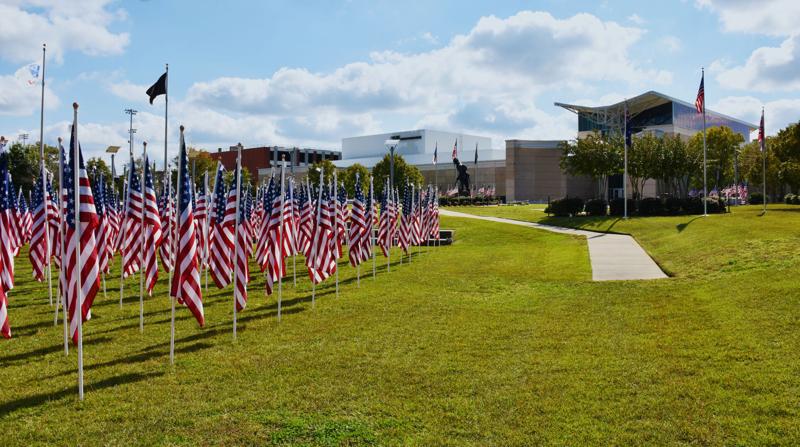(The Center Square) – A safety net for North Carolina veterans struggling with the aftermath of war received a significant boost in the recently adopted budget that will expand services and programs throughout the state.
The Veterans Justice Initiative will receive $750,000 in state appropriations each of the next two years. Money goes to train law enforcement, first responders, and others across the state on the mental and physical struggles impacting veterans once they return home, and resources available to help them, executive director Clark Pennington told The Center Square.
The initiative was born from the Independence Fund, a North Carolina organization devoted to helping catastrophically wounded U.S. military veterans regain their lives and independence. Pilot programs were launched across six counties in 2021 with an initial $500,000 from the General Assembly.
“We’re really trying to decriminalize mental health (issues) … to really help connect veterans with treatment” before situations lead to criminal charges, Pennington said. “It’s really a proactive approach to teach law enforcement and first responders how to deescalate a veteran who might be in crisis.”
Much of the focus is on veterans with post-traumatic stress disorder and traumatic brain injuries. These are ones often experiencing flashbacks and other mental health issues that can create volatile situations requiring law enforcement intervention. Many situations also involve substance abuse, suicidal ideation, and homelessness.
“We teach law enforcement what that looks like and we also teach them about military culture,” Pennington said. “Then when they identify a veteran, they’re able to connect with them using the training … and then connect them with the Independence Fund to get them treatment.”
To date, the initiative has trained more than 3,000 police officers and first responders throughout the state, successes leaders in the General Assembly highlighted in a press conference last week.
“North Carolina made a commitment many years ago to put our veterans first,” House Majority Leader John Bell, R-Wayne, said. “We want to make sure North Carolina is the most military-friendly state in the country.”
“I think the partnership with the state of North Carolina is making a huge difference,” Pennington said.
To date, the initiative has helped in 207 cases across the state involving veterans of all military branches, including 13% dealing with homelessness, 16% dealing with addiction, and 24% facing mental illness, according to the organization’s website.
Pennington said the initiative will leverage this year’s state funding to continue to expand its efforts across the state through roundtable discussions with local officials; training sessions at police departments, fire stations, and other locations; and a new “check the box” project launched with the help of state Supreme Court Justice Phil Berger Jr.
“The check the box program is what’s being rolled out under this year’s program,” he said.
The effort will allow veterans charged with crimes to check a box on an Affidavit of Indigency that would trigger a closer look at the veteran’s needs, to ensure treatment for mental health or substance abuse, counseling services, Veterans Affairs assistance or other supports.
Pennington said that’s especially important for many veterans struggling with addiction.
“Substance abuse becomes a real important part to us getting them back on track,” he said.
Other initiative work will focus on participation with steering committees for Veteran Treatment Courts throughout the state, which have expanded from five when the initiative launched to eight now, with another five in the works, Pennington said.
Those courts typically involve 12- to 18-month programs for veterans involved with the court system that provide a structure for treatment and resources for work to help them regain control of their lives, he said.
North Carolina’s six major military bases include the U.S. Army’s Fort Bragg and Pope Air Force Base, both in the southeastern part of the state; Seymour Johnson Air Force Base in eastern North Carolina; and U.S. Marine Corps Air Station Camp Lejeune and MCAS New River along the coast, not more than an hour’s drive from the more inland MCAS Cherry Point. There are also two U.S. Coast Guard bases along the northern coast at Elizabeth City; and the Military Ocean Terminal Sunny Point on the southern coast in Brunswick County.







